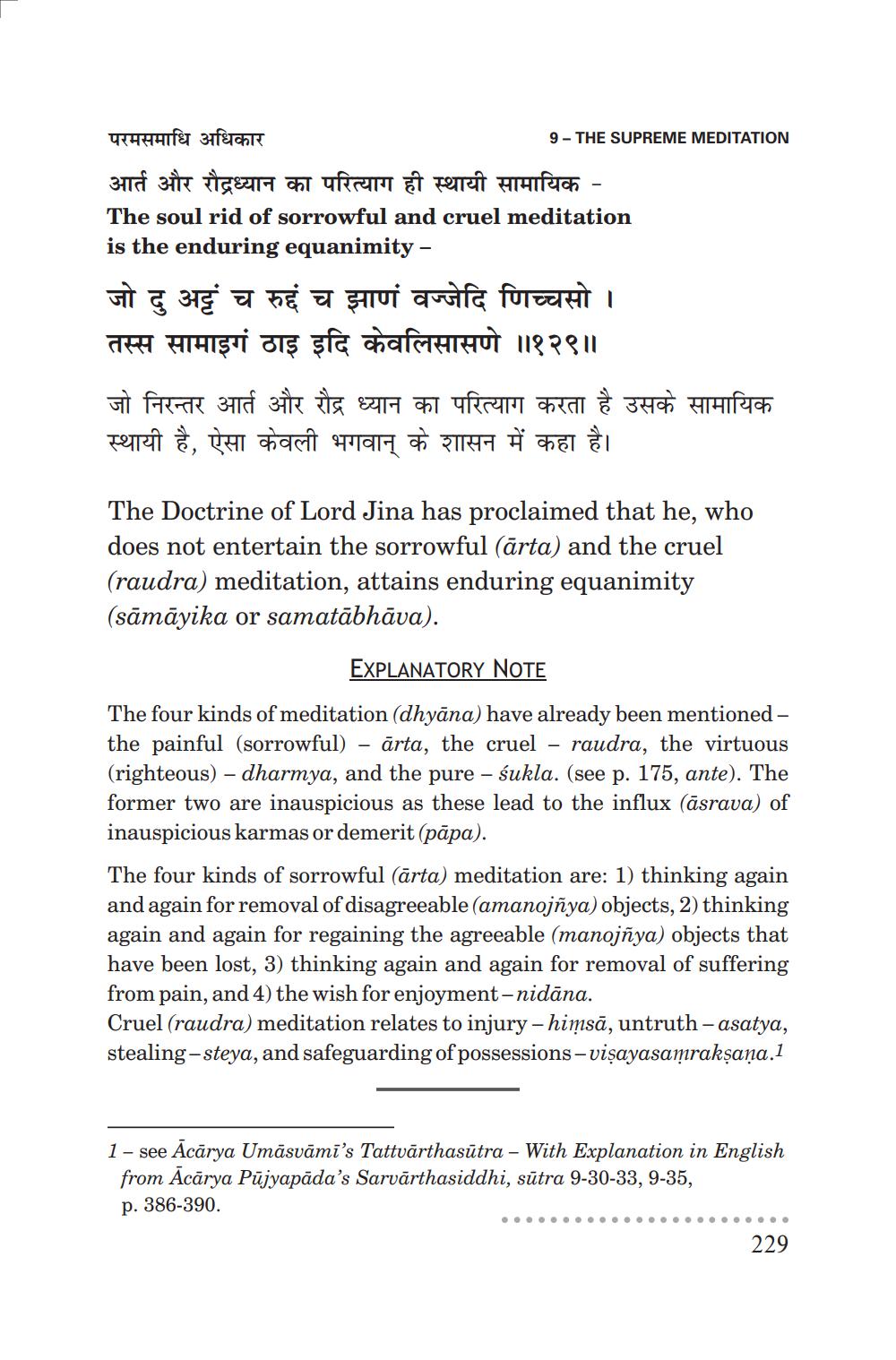________________
परमसमाधि अधिकार
9- THE SUPREME MEDITATION
आर्त और रौद्रध्यान का परित्याग ही स्थायी सामायिक - The soul rid of sorrowful and cruel meditation is the enduring equanimity - जो दु अटुं च रुदं च झाणं वज्जेदि णिच्चसो । तस्स सामाइगं ठाइ इदि केवलिसासणे ॥१२९॥
जो निरन्तर आर्त और रौद्र ध्यान का परित्याग करता है उसके सामायिक स्थायी है, ऐसा केवली भगवान् के शासन में कहा है।
The Doctrine of Lord Jina has proclaimed that he, who does not entertain the sorrowful (ārta) and the cruel (raudra) meditation, attains enduring equanimity (sāmāyika or samatābhāva).
EXPLANATORY NOTE The four kinds of meditation (dhyāna) have already been mentioned - the painful (sorrowful) - ārta, the cruel – raudra, the virtuous (righteous) – dharmya, and the pure – śukla. (see p. 175, ante). The former two are inauspicious as these lead to the influx (āsrava) of inauspicious karmas or demerit (pāpa). The four kinds of sorrowful (ārta) meditation are: 1) thinking again and again for removal of disagreeable (amanojñya) objects, 2) thinking again and again for regaining the agreeable (manojñya) objects that have been lost, 3) thinking again and again for removal of suffering from pain, and 4) the wish for enjoyment-nidāna. Cruel (raudra) meditation relates to injury – himsā, untruth - asatya, stealing-steya, and safeguarding of possessions - visayasamrakṣaṇa.1
1 - see Acārya Umāsvāmi's Tattvārthasūtra – With Explanation in English from Acārya Pujyapāda's Sarvārthasiddhi, sūtra 9-30-33, 9-35, p. 386-390.
229




